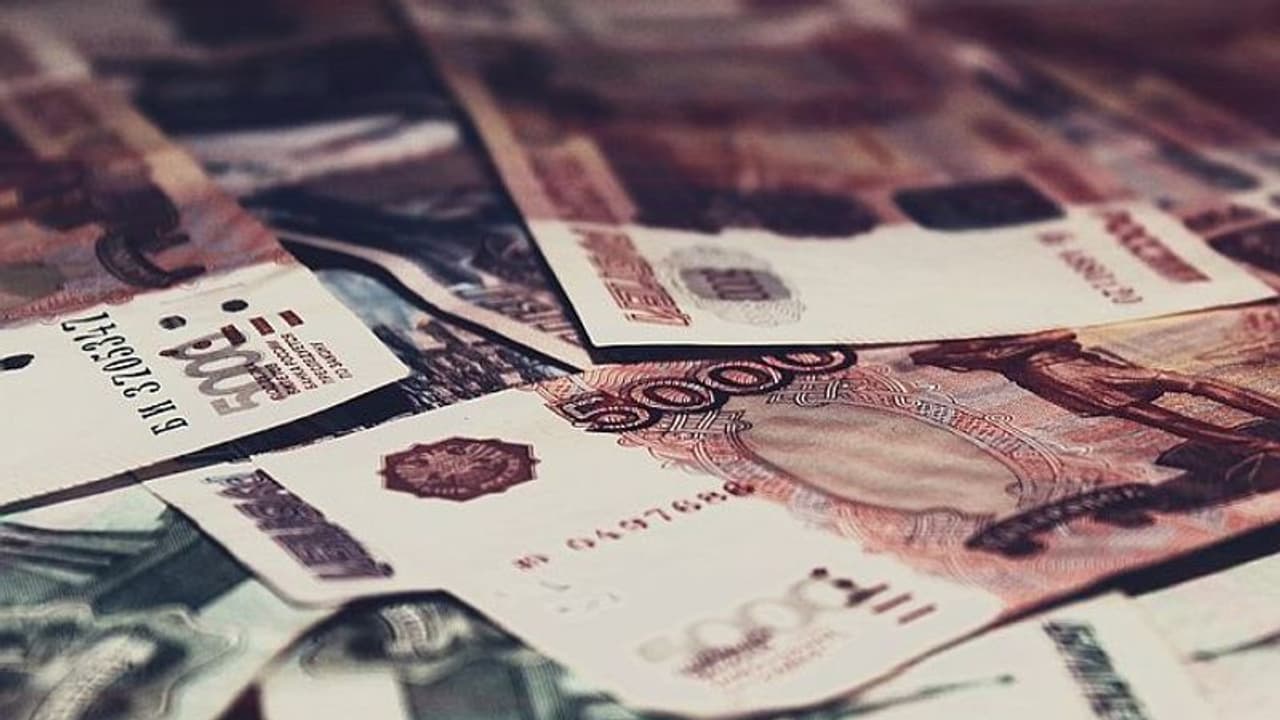Russia's Ruble fell to 117 per US Dollar, a decline of 41% following sanctions from the European Union and other countries in the West over the Ukraine invasion
Russia's Ruble fell to 117 per US Dollar, a decline of 41% following sanctions from the European Union and other countries in the West over the Ukraine invasion. The crash far exceeds the loss suffered by the country on August 26, 1998, during the height of the Russian Financial Crisis.

The currency crash has triggered a bank run in Russia with large lines being witnessed outside branches with people panicking and looking to withdraw all their bank deposits. This is despite the Russian Central Bank assuring people that it will provide uninterrupted Ruble liquidity.
According to Steve Hanke, an economist at Johns Hopkins University, "The Russian Ruble sank to a new all-time low, trading at 117.62 RUB against the Dollar. Since January 1, 2022, the Ruble has depreciated by as much as 47.33 percent against the US Dollar. Conflict in Eastern Europe is fueling the currency's destruction. At present, I measure Russia's inflation at 69.4% per year."
What does this mean?
According to experts, the Ruble crash could result in the following:
* Living standards drop in Russia.
* Imported goods are now very expensive and it could lead to supply shortages
* Russia gets 40 percent more Rubles for its oil and gas exports.
The crash comes hours after the European Union rolled out a slew of measures penalizing Moscow for its invasion of Ukraine. The measures, the European Commission said, strengthen the grouping's response to Russia's invasion of Ukraine and cripple Russian President Vladimir Putin's ability to finance his war machine.
European Commission President Ursula von der Leyen said that Putin, by embarking on a path aiming to destroy Ukraine, will also destroy the future of his own country.
The measures included removing a certain number of Russian banks from the SWIFT international payment system, which will stop them from operating worldwide and effectively block Russian exports and imports.
The Russian Central Bank has assured citizens that it had enough resources to support the stability of the Russian financial sector and secure its operations. That claim would now be put to test considering the European Commission's move to paralyze its assets.
The EU's move has frozen the Russian Central Bank's transactions and made it impossible for the bank to liquidate its assets.
Also Read: European Union bans Russian media outlets; G7 threatens new sanctions
Also Read: FIFA punishes Russia for Ukraine invasion, FA refuses to play with them
